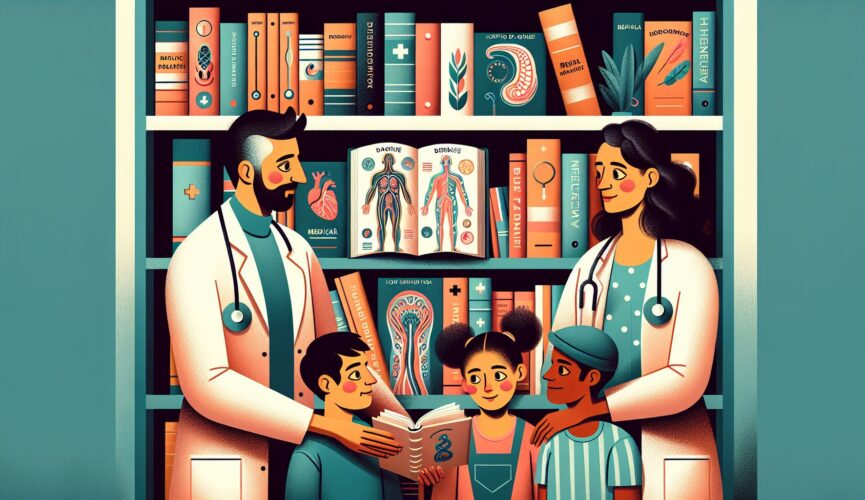Seeing a loved one battle with illness can be an emotionally challenging experience, and it’s only natural for concerned family members to want to help in any way they can. While diagnosing and treating diseases is best left to medical professionals, it is still crucial for families to understand the processes involved and how they can support their loved ones. In this article, we will delve into the steps involved in diagnosing and treating diseases, while providing valuable advice for families going through this difficult time.
Understanding the Diagnostic Process
Accurate diagnosis lays the foundation for effective treatment. Initially, the primary care physician is approached, who may refer your family member to a specialist if necessary. Specialists employ a range of medical technologies to conduct tests, such as blood work, imaging scans, and genetic analysis, depending on the nature of the illness. These tests provide valuable insights into the underlying causes of the disease, which is essential for developing an appropriate treatment plan.
Effective Treatment Strategies
Once the diagnosis is established, the focus shifts towards treatment plans, often involving a multidisciplinary approach. While every illness requires a unique treatment strategy, let’s highlight some common elements that can aid the recovery process:
1. Medication
In many cases, medications play a vital role in treating diseases. They are designed to manage symptoms, reduce inflammation, or target the underlying cause of the illness. It’s crucial for families to support their loved ones by ensuring medications are taken as prescribed and implementing any lifestyle adjustments recommended by the healthcare team.
2. Lifestyle Modifications
Lifestyle modifications can have a profound impact on the recovery process. Encourage your family member to adopt healthy habits such as regular exercise, a balanced diet, adequate sleep, and stress management techniques. While it may be difficult at first, offering your support and engaging in these activities as a family can significantly enhance the likelihood of success.
3. Physical Rehabilitation
For certain diseases or injuries, physical rehabilitation can greatly aid recovery. This may involve sessions with physiotherapists, occupational therapists, or speech therapists, depending on the specific needs of your loved one. Assisting them during their rehabilitation exercises and providing emotional support throughout the process can make a significant difference in their overall well-being.
4. Emotional Support
Dealing with a disease can take a toll on a person’s mental health. As a family member, you play a crucial role in providing emotional support. Offer a listening ear, attend medical appointments together, and remind your loved one that they are not alone in this journey. If necessary, consider seeking professional counseling or support groups where both the patient and the family can find solace and guidance.
The Role of Families in the Recovery Process
While medical professionals take the lead in diagnosing and treating diseases, families can play an essential role in supporting their loved ones throughout the recovery process. Here are a few ways you can contribute positively:
-
Communication: Maintain open and honest communication within the family unit. Encourage your loved one to express their feelings, fears, and concerns, and provide reassurance and empathy.
-
Education: Take the time to research and understand the disease your family member is facing. This will not only enable you to provide informed support but also help you navigate medical appointments and discussions with healthcare professionals.
-
Organization: Assist in managing medical appointments, keeping track of medications, and maintaining medical records. This ensures a smooth and efficient recovery process and minimizes the chance of any missed or duplicated treatments.
-
Care coordination: Collaborate with the healthcare team to ensure there is a clear plan in place for your loved one’s recovery. Attend appointments, ask questions, and provide updates on symptoms or progress.
Conclusion
Watching a family member struggle with illness can be distressing, but families can play a crucial role in supporting their loved ones’ journey towards recovery. By understanding the diagnostic process, implementing effective treatment strategies, and offering emotional support, families can make a significant positive impact. Remember, although it’s important to be involved, it’s equally crucial to leave the medical aspects to the professionals. Together, we can help our loved ones overcome their illness and regain their health.
